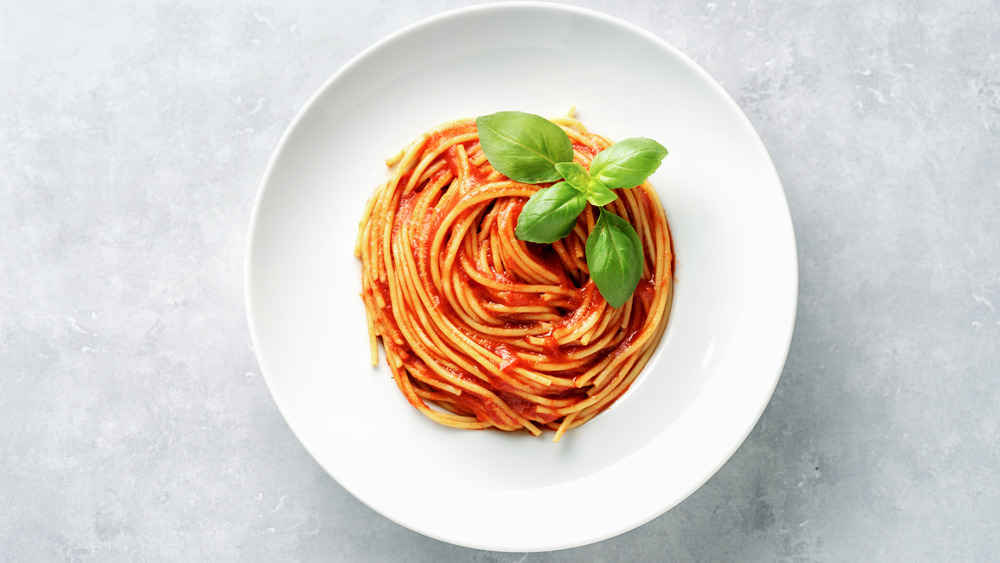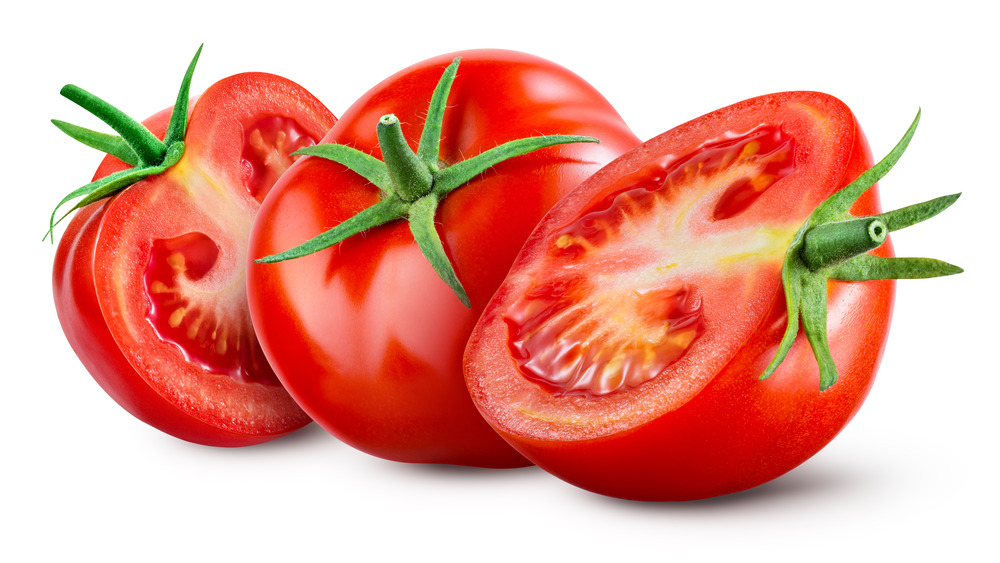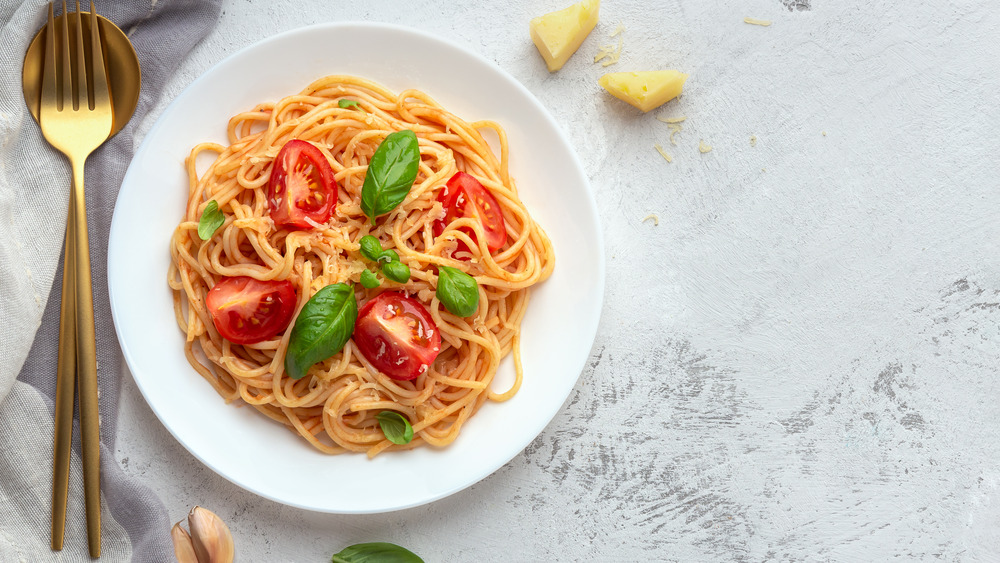J. Kenji López-Alt Says To Not Believe This Tomato Sauce Myth
If you love Italian food and love to cook, chances are you've tried out homemade tomato sauce — be it marinara, puttanesca, or Sunday gravy style. It's likely, too, that when you've made these sauces you've gone through the laborious step of removing all the seeds from tomatoes. That's because there's a well-known kitchen rule that claims tomato seeds are bitter and must be discarded so they don't present their harsh taste and ruin an entire pot of sauce. In fact, many tomato sauce recipes urge cooks to get rid of the seeds, too. In this recipe for Fresh Tomato Sauce (via Smitten Kitchen), it calls for fully seeded ingredients, insisting that leaving them in can make the sauce acrid.
"A few weeks ago, I hauled home six pounds [of tomatoes] for six bucks and me and my assistant proceeded to cook them down, and cook them down," the author writes. "I forgot to seed them. And the seeds imparted this almost bitterish tinge."
But here's the thing: Seeding tomatoes is a pain. Many times, we've wondered if this kitchen dogma is actually rooted in fact — and many times, we've skipped this arduous step when making sauce at home. Now we're feeling vindicated because none other than culinary whiz J. Kenji López-Alt himself says tomato seeds are no issue.
Examining the bitter myth of tomato seeds
In a March 2021 Instagram post, López-Alt shared an image of meatballs simmered in a simple tomato sauce, sprinkled with grated pecorino cheese. In the comments, a follower asked, "Do you know if the thing about tomato seeds turning the sauce bitter [is] true?" "Not true," López-Alt responded. Wait, what? This could revolutionize how we make tomato sauce!
If there's anyone more qualified to make this bold claim, we don't know of them; López-Alt is the chief culinary consultant at Serious Eats, a New York Times recipe columnist, and a cookbook author (via J. Kenji López-Alt). Surely, if he says that it's fine to leave tomato seeds in a sauce, it must be true. But just to be sure, we did some extra research and, as it turns out, this does indeed seem to be an unnecessary step.
First, we turned to the recipe authorities at Cook's Illustrated, whose test kitchen compared a batch of tomato sauce made with seeded beefsteak tomatoes against a batch that remained full of seeds. When the two sauces were ready, tasters were unable to detect any flavor differences between them. "Since the seeds don't harm the flavor, and removing them is a hassle, we'll be leaving them in," Cook's Illustrated noted.
Experts agree — tomato seeds are no big deal
To be extra, extra sure, we checked in with additional food experts, including those at Bon Appétit. In a post called "The Truth About Tomatoes," former editor Julia Kramer opines, "Somewhere, there is an Italian grandmother who is calling me a liar, but seeds have just never bothered me. Not to mention the fact that the claim that tomato seeds are bitter is not supported by science."
Not only are tomato seeds not bitter, some say their inclusion in recipes is actually crucial. That's because the jelly that surrounds the seeds — which, of course, gets discarded when you remove them — is super-high in glutamic acid, according to a 2007 study published in the Journal of Agricultural and Food Chemistry. And glutamic acid is of the compounds responsible for that irresistible umami flavor in food. The same study also emphasized that most of a tomato's flavor resides in the jelly around the seeds and not in the fruit's flesh.
So there you have it: If you want a rich, tasty tomato sauce, you now have permission to be lazy. Be bold, leave in the seeds, and your palate will be happy.


